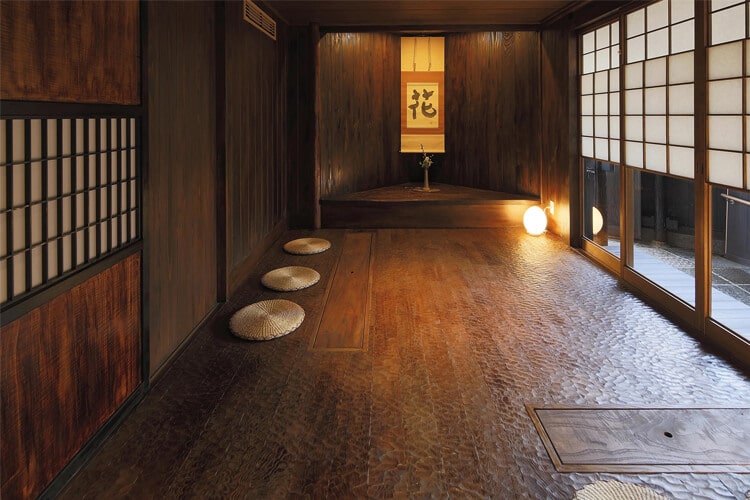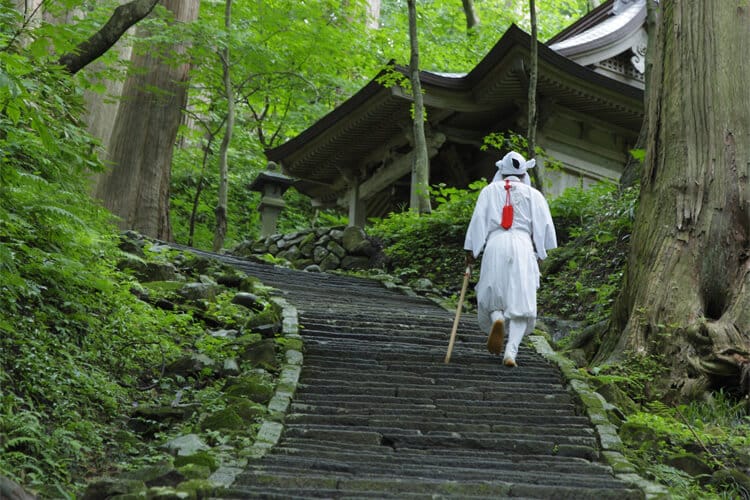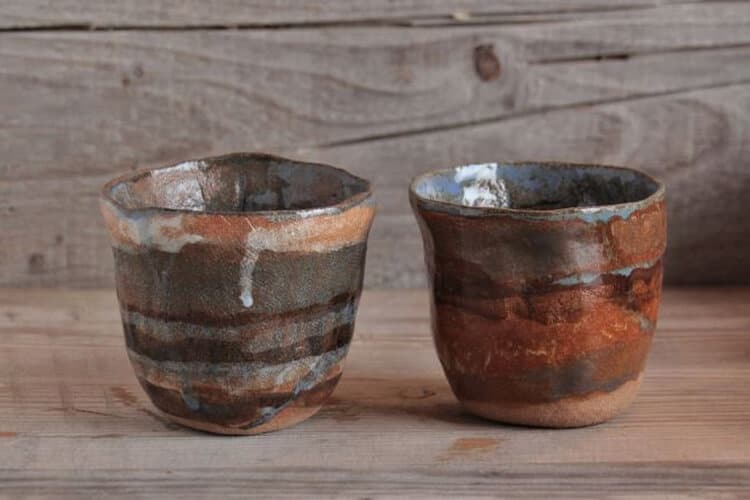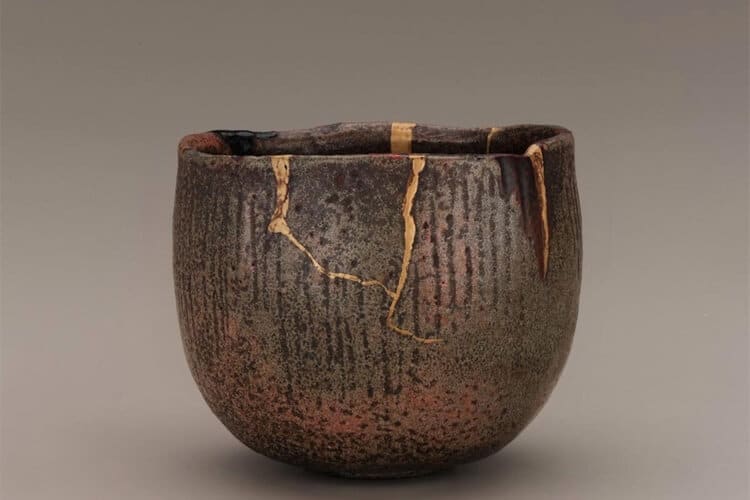In a world filled with high-stress levels, fast-paced life, unrealistic pursuits of perfection, and affliction with material wealth, an ancient Japanese lifestyle may be just what we need right now to save us: Wabi-Sabi. Alright, What does Wabi Sabi mean? What is the Wabi-Sabi philosophy?
Wabi-sabi is an elegant philosophy that expresses a more connected way of life. That is, a lifestyle tells us that we are deeply connected to nature and thus better connected to our most authentic inner selves. We take a closer look at the five philosophies offered by the impeccable Wabi-Sabi teaching.
What Does Wabi-Sabi Mean?
Wabi-sabi is a concept that always leads us to seek imperfect beauty and accept the natural cycle of life. Wabi-Sabi reminds us that everything is impermanent, incomplete, and flawed. So perfection is impossible, and discontinuity is the only way.
Wabi is about recognizing beauty in humble simplicity. Instead, it invites us to open our hearts and detach ourselves from the arrogance of materialism so that we can experience spiritual richness.
Sabi deals with the passage of time, how everything grows, ages, and deteriorates, and how it manifests itself beautifully in objects. It suggests that beauty lies beneath the surface of what we actually see, even in what we initially perceive as broken.
Together, these two concepts create an overarching philosophy for approaching life: accept what is, stay in the present, and appreciate life’s simple, transitory phases.
5 Wabi-Sabi Philosophies That Will Break Your Perception of Perfection:
There is a lot of wisdom embedded in the fabric of this age-old philosophy. Here are 5 Wabi-sabi teachings that can better help you move away completely from today’s struggles to move fast, strive for perfection, and chase inorganic forms of success:
1) You find freedom through acceptance; You find growth outside of acceptance.
Dewa Sanzan is a little-known mountain range in northern Japan. Since the 8th century, it has been a sacred pilgrimage site for Yamabushi priests who participate in annual rituals seeking rebirth and enlightenment for their minds, bodies, and souls. The core philosophy of their training can be summed up in one word: Uketamo, which means “I humbly accept with an open heart.”
- Are you about to lose your job? Uketamo!
- The forecast suddenly turned into torrential rain, and now you have to cancel your outdoor activity? Uketamo!
- You had an accident, and now you broke your left leg, and you’re going to be in a cast next month? Uketamo!
Uketamo means self-acceptance. Yamabushi says that the sooner you accept all the good and bad things life has to offer, the lighter you will be. It says that we find our freedom through acceptance, and out of acceptance, we find our way to growth.
What freedom? The freedom to stop any kind of pain.
What growth? An opportunity to learn and expand from our own struggles.
You see; We tend to assume that Zen is about living in an endless, carefree state of bliss and serenity. Zen is about how you face the challenges and challenges that life presents to you. It’s about how you deal with the inevitable realities of failure, grief, anxiety, and loneliness. Will you accept the imperfect flow of life? Or will you fight it? Will you find peace in what is here right now? Or will you deny it and continue to fight it?
The idea is pretty simple: As you continue to resist, you will continue to consolidate your pain. The first teaching of wabi-sabi philosophy, then, is to practice gratitude and acceptance. It’s not about giving up. It’s about surrendering to the seriousness of the situation at hand and taking an active part in deciding what happens next. As you begin to surrender to the imperfect flow of life, you will find peace and freedom and step on the path of growth.
2) Everything in life, including you, is in a state of imperfect flow. Therefore, strive for perfection, not to be perfect.
If everything in nature is constantly changing, then nothing can be absolutely complete. And since perfection is a state of completeness, nothing can ever be perfect. Therefore, the wabi-sabi philosophy teaches that everything is impermanent, incomplete, and imperfect, including us and life itself. But the problem is that our imperfect ways of thinking have now blurred our understanding of what perfection really is.
Open a thesaurus and look for the antonyms for the word “perfect” and you will find these words: Imperfect, broken, inferior, poor, second-rate, incompetent, broken, wrong, bad. All these negativities. No wonder we’re so obsessed with the pursuit of perfection.
We shape the perfect body according to what society must look like to pass this test of perfection. Based on this definition of excellence by someone else, we look for the perfect career path and the perfect partner. And as creators, we put off that imperfect artwork forever before publishing it. Researchers estimated that in 2020 the global anti-aging market was worth about US$60 billion. People are dying to look younger. But isn’t aging the natural cycle of life? Isn’t it nice to get old as time goes on?
There is no perfection because imperfection is the natural state of life:
All this happens because we feed this false narrative that we’re not good enough. We accepted this view, which is not our own. We let it define us. And now we pursue this illusion of perfection, believing that it will make us feel valuable and good enough in ourselves. But here’s the reality check: There is no perfection because imperfection is the natural state of life—you are whole, whole as you are. To remove this negative stigma of imperfection, we must first reject it entirely as the “opposite” of perfection’s fictional construct. Imperfection is not a compromise; Imperfection is the only way because imperfection is the true nature of things.
The second teaching of the wabi-sabi philosophy is simple: Strive for perfection, not perfection. In other words: Do your best to be the best you can be. This aligns with one of Don Miguel Ruiz’s four agreements to achieve personal freedom. Try to be the best partner you can be in your relationship with your partner. Seek mastery in your creative work. Strive to improve the form of your craft, never expecting to achieve absolute perfection.
Everything in life, including you, is in a state of imperfect flow. The only constant is change. Everything is temporary, and nothing is complete. That’s why there is no perfection.
3) Appreciate the beauty of all things, especially the incredible beauty that hides beneath the surface that seems to be broken.
Kintsugi, an ancient art form, originates from wabi-sabi, where you give them “golden wounds” by repairing broken objects with gold fillings. Imagine a bowl or teapot that has fallen to the floor. What are you going to do with it? Most likely, you will pick up the pieces and throw them away. But not with Kintsugi. Here you put together the broken pieces of decoupage pottery and glue them with liquid gold. Doesn’t this make them imperfect, permanent, and inevitably imperfect, but somehow more beautiful?
Kintsugi reminds us that there is great beauty in broken things because scars tell a story. They show fortitude, wisdom, and endurance gained through the passage of time. Why hide these flaws or golden scars when we can celebrate them?
The idea here is simple: There will be many times in your life when you will feel broken. There will be events that will leave you emotional or physical scars. Do not hide in the shade of your own sunlight. Do not dim your own light with the darkness of a cloud. Instead, let those scars be redrawn with gold.
Imagine that your failures are there to teach you how not to do things, your mistakes are there to teach you the importance of forgiveness, and your wrinkles are there to remind you of the laughter that caused them.
Begin to embrace this concept of Kintsugi (broken objects should not be hidden but displayed with pride), and you will gradually begin to understand how you dissolve this image of perfection and replace it with a new hymn.
The concept of beauty = your whole.
4) Slow and simple: It is the only way to feel the joy of what it means to be alive.
You may be wondering, but how can you see the beauty below the surface? How do you manage to find beauty in everyday life when everything seems so dark and cruel? The answer to these questions lies in the fourth teaching of philosophy: Slow down and simplify your life. Otherwise, it will pass hastily, reach the end. This teaching is quite simple, but its immediate and long-term effects are profound.
Here is why:
- Slowing down is the antidote to living fast. Slowing down helps you become a more attentive person. This will help you become more conscious. Why? Because as soon as you slow down, you start creating space for you to stop and think, wonder and ask questions. You naturally become more present. Why do most people hit rock bottom or go through complete burnout before realizing their lifestyle is not sustainable? This is because they move so fast and never slow down to hollow out the mental and emotional space for them to observe and analyze their self-sabotaging behavior.
- Simplifying your life is the antidote to living a complex life. At any point in time, the moment you try to change something in your life, you will find that the first step is to ask “what do I need” rather than “what do I need to add” over and over again. When you’re about to move into a new home, you throw away old items. When making a budget, you eliminate unnecessary expenditures. As I enter a new relationship, you wonder what some habits I need to let go, so that I can make room for this person in my life. Order is an integral part of the journey of growth and change. Letting go of things that no longer serve you determines how you make room for what will happen.
Slow and simple, the only way to feel the joy of what it means to be alive. Why? Because only by doing this will you allow yourself to be more present and in tune with the world around you. Only by doing so will you immerse yourself in the fabric of this universe and appreciate it for what it is:
The joy of watering your flowers in the morning, the joy of watching a setting sun, the joy of listening to the soft rain, the joy of cooking. Or reading a book under the shade of a tree. And that’s the core of the fourth teaching: Slow down, simplify your life, and concentrate on what’s really important to you. If you want to experience the joy of everyday life, be more conscious.
5) Being content with everything you already have and exactly where you are is to be happy.
Today’s society is obsessed with finding happiness. A young adult spends a good part of his life chasing the next big thing: the next big job, the next big start, a new country, and the next big move… Whenever you work hard to get to where you think you want to be, this wave of emptiness will overtake you.
This wave of despair; Harvard positive psychology is what Tal Ben-Shahar calls the arrival fallacy. “The illusion that once we achieve or achieve our goal, we will achieve lasting happiness.”
Of course, this is not the case, because compulsive goal setting does not lead to happiness. Rather it leads to a mindless and stressful game of fetch.
The truth is, our obsession with seeking happiness has prevented us from seeing what happiness really is. It’s just another feeling. We feel happy and unhappy just as we feel angry, sad, scared, or excited. Just as you can’t always be excited, you can’t always be happy. So what’s the problem with chasing success? First, it will always avoid you. Second, it’s nearly impossible to be happy all the time.
This is where the ultimate wabi-sabi teaching comes in. To be content with anger as you are usually satisfied with the feeling of excitement. Being content with the state of sadness just as you are incredibly content with the state of happiness. “Rich is someone who is content with who they are or what they have.” Or “All I have is what I need.”
You see, the root of all unhappiness comes from dissatisfaction with where you are and what you have. It really is that simple. The root of all unhappiness comes from spending all your waking hours looking outside your life and looking into the distant future instead of opening your eyes to the present and looking within.
Being content with what you have and where you are is being grateful. Being content with what you have and where you are, working for what you want, and having complete confidence that you can achieve it is being intentional. And through gratitude, intention, and action, you find happiness. What about the beauty of all? At this point, everything turns to the teaching of first wabi-sabi: Acceptance is contentment and contentment is acceptance.
Basic Teaching of Wabi-Sabi Philosophy
Wabi-sabi is a beautiful philosophy to place and apply to your daily life. In essence, wabi-sabi reminds you that life is fragile and temporary, as temporary as anything in nature, so why not just allow yourself to be yourself? As Beth Kempton writes in Wabi-Sabi: Japanese Wisdom for a Perfectly Imperfect Life:
“Simply put, wabi-sabi allows you to be yourself. It encourages you to do your best, but don’t make yourself sick after an unattainable goal of excellence. It allows you to slowly relax, slow down and enjoy your life. And it makes every day a pleasure by showing you that beauty can be found in the most unlikely places.”
Eckhart Tolle: The Essence of His Life, Career, Books and Teachings
























